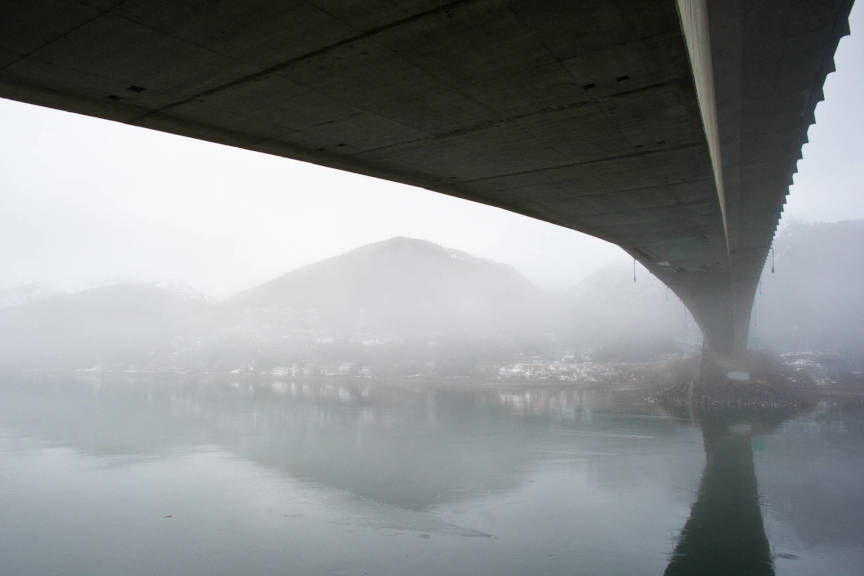Summary:
Alaska has many areas of need where infrastructure is concerned, but still receives grades slightly better than the rest of the nation, according to a 2017 infrastructure report card.
Many of the infrastructure challenges facing the state are compounded by the remote locations of some of Alaska’s communities.
While about 75 percent of the population resides in three metro areas, 5 percent resides in villages that are typically in worse shape where power, waste, wastewater and water infrastructure are concerned.
“There’s almost two separate communities between rural bush and Alaska,” Uchytil said.
12:55 p.m.
Carl Uchytil, Port Director for City and Borough of Juneau Docks and Harbors, said the reason Juneau’s ports and harbors received a D grade primarily has to do with aging infrastructure.
Multiple speakers at this point have acknowledged either infrastructure or some facet of infrastructure are “not sexy” or an aspect of modern living that flies under the radar.
12:40 p.m.
Roads, bridges and the ferry system could be improve with increased funding, according to recommendations made in the American Society of Civil Engineers.
Alaskans are eight times more likely to travel by air, and there are six times as many pilots in the state compared to the national average, according to the report.
12:35 p.m.
A couple more interesting statistics: 72 percent of the state’s population lives in three metro areas. Half of the states roughly 1,500 bridges are part of the road system.
12:25 p.m.
About half of the seven people in attendance are members of American Society of Civil Engineers, which releases national and state infrastructure report cards every four years, most recently in 2017.
Back then, Alaska graded out at a C-, which is a half letter better than the national average of a D+.
The reports consider things such as aviation, bridges, dams, water and wastewater, energy, marine highways, ports and harbors, roads and solid waste.
Bridges graded out the best at B-. Water and Wastewater, marine highways and ports and harbors all received Ds, and were a three-way tie for the state’s worst categories.
12:20 p.m.
Fun fact from the early going of this presentation: Alaska has fewer miles of paved road than Rhode Island.
12:10 p.m.
Today’s meeting at City Hall is the kickoff for Infrastructure Week in Juneau. Infrastructure Week is a national effort to raise awareness of infrastructure many take for granted in their daily lives.
The Infrastructure Week kickoff presentation hit some technical difficulty delays, but is now underway with a clip from “Last Week Tonight with John Oliver.”
• Contact reporter Ben Hohenstatt at (907)523-2243 or bhohenstatt@juneauempire.com. Follow him on Twitter at @BenHohenstatt.

